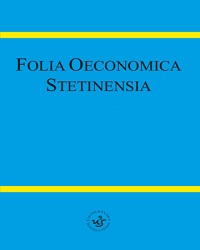Unravelling the Secrets of Inflation in the Euro Area – A Frequency Decomposition Approach
Unravelling the Secrets of Inflation in the Euro Area – A Frequency Decomposition Approach
Author(s): Dieter Gerdesmeier, Barbara Roffia, Hans-Eggert ReimersSubject(s): Supranational / Global Economy, Economic policy, Financial Markets
Published by: Wydawnictwo Naukowe Uniwersytetu Szczecińskiego
Keywords: Frequency decomposition; inflation; money; credit;
Summary/Abstract: Research background: The study contributes to the field of monetary economics. In the practice of monetary policy, all central banks have a vivid interest in distinguishing between signals and noise in the data. Purpose: The study investigates from a frequency-domain perspective the interlinkages between money, loans, inflation and real GDP for the euro area. Research methodology: The research methodology includes a combination of a time-series single-equation estimation approach with a frequency decomposition analysis. Results: Broad monetary measures are found to add positively and significantly to euro area inflation over longer horizons and so do loan developments. Over medium-term horizons, real economic and exchange rate developments seem to exert a significant impact. Over shorter horizons, none of the variables under consideration affects inflation in a significant way. Robustness checks confirm the overall results. Monetary aggregates also seem to explain house price developments at lower frequencies. In addition, real GDP and exchange rate (possibly reflecting an income effect) exert a strong and significant impact, while stock prices show a substitution effect. Novelty: The paper adds to the studies focusing on the driving forces of inflation and growth over various time horizons, with the conclusion that central banks should adopt medium-term orientation and always closely monitor real, monetary and exchange rate developments in conjunction.
Journal: Folia Oeconomica Stetinensia
- Issue Year: 20/2020
- Issue No: 1
- Page Range: 133-162
- Page Count: 30
- Language: English

